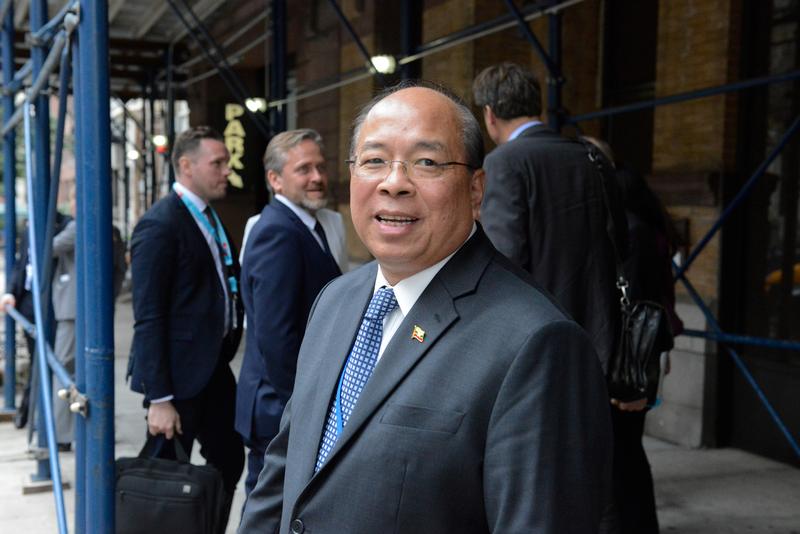A top Burmese official appealed on Monday for democracy in the country to be given “a chance to survive” amid international anger over a military campaign against Rohingya Muslims that the United Nations has described as ethnic cleansing.
Some 507,000 Rohingya have fled to Bangladesh since insurgents attacked security posts near the border on 25 August, triggering a fierce Burmese military retaliation. Burma says more than 500 people have been killed, most of them insurgents.
National Security Adviser Thaung Tun told Reuters that he has spoken with his US counterpart, H.R. McMaster, on the phone and visited members of the US Congress in Washington last week. He said sanctions were not specifically discussed.
The United States called last week on countries to suspend providing weapons to Burma’s military, but it stopped short of threatening to reimpose US sanctions, which were lifted under the Obama administration.
“We need to ensure that democracy has a chance to survive in Myanmar. This is a young democracy,” Thaung Tun told Reuters in an interview at the United Nations, noting that government leader and Nobel Peace Prize laureate Aung San Suu Kyi has only been in office for 18 months.
Suu Kyi assumed power following a landslide election win after former military leaders initiated a political transition. For years, the United States and others imposed sanctions on Burma in support of Suu Kyi’s campaign for democracy.
“We have a lot of challenges and these challenges cannot be overcome in a day. Rome wasn’t built in a day. So we can’t undo 50 years of challenges,” said Thaung Tun, adding that he hoped to meet in person with McMaster, President Donald Trump’s national security adviser, to brief him on the current situation.
A Trump administration official said last month the violence made it harder for the United States and Burma to build warmer ties, and there would likely be some “easing” in the short term, but he did not expect a return to sanctions.
Thaung Tun said he had not met privately with US Ambassador to the United Nations Nikki Haley but had spoken to her briefly on the sidelines of other meetings in New York.
The UN Security Council met publicly last week on Burma for the first time since 2009. Haley said Burmese authorities appeared to be carrying out “a brutal, sustained campaign to cleanse the country of an ethnic minority.”
She said countries should stop supplying weapons to Burma until the military has sufficient accountability measures.
Thaung Tun said “action has been taken against a number of policemen who exceeded their bounds in dealing with detainees.”
“We have very strict instructions for the security forces to carry out their duties within the bounds of the code of conduct,” he said. “Nobody is above the law.”
[related]
He said that ethnic cleansing or genocide was not happening in Burma.
Burma’s government has said that there have no military operations since 5 September. But Thaung Tun said that since then security forces have responded when attacked.
“Under the cover of night there have been some sporadic attacks and the police and the security people have been required to respond in self-defence,” he said.
Bangladesh and Burma agreed on Monday to set up a “working group” to plan the repatriation of those who had fled.



